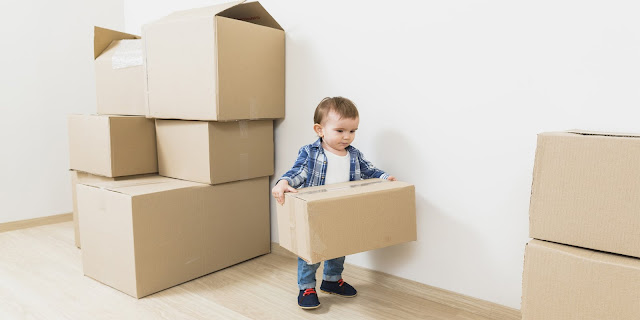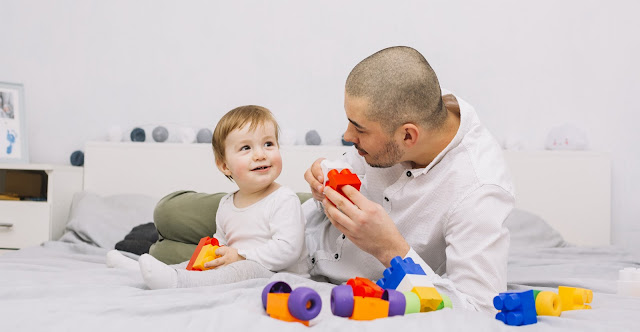
There was a time when our ancestors were nomads. They roamed around the wild to settle for a perfect place to build communities. The same places, they lived for generations to come. Then there was an upsurge in population. Now, as parents, we are forced to move out of the places we lived for nearly two decades, due to a multitude of reasons such as transfer of jobs, corporate relocation, and personal reasons. While relocation to another place might be a welcome move for many of the adults, in tiny tots, children and teens, it will be considered a complicated decision.
However, Cloud packers and movers aim to make the process as simple as possible and here are the tips provided to make the move easy for children as well as all members of the family.
Facts You Have To Understand
It is proved children, devoid of age, are subject to a variety of emotions, when they understand, a move is on the cards.
There are two options thrown to you during a challenge. One is to crib and the other is to make the best of it.
Every family is prone to experiencing hardships when they move from one place to another.
The condition of the kids will be traumatic, as they will have to lose their friends, handlers, and they may feel they are not consulted for the part. Relocation might mean an improvement for the parents in terms of lifestyle, but kids may think it is forced on them.
 Give them ample time to get prepared. Tell them the movement is not a joke and is going to happen.
Give them ample time to get prepared. Tell them the movement is not a joke and is going to happen.
The major reason why kids dread change is that they fear the loss of routine and familiarity. The first step is to maintain a good rapport and exhibit a positive attitude. There may be times when you will have to relocate due to loss of jobs or a dear one. Kindly note, children are greatly influenced by the moods and attitudes of a parent, and in case of negative feelings, it can demotivate them to a greater level. At the ages of 4 or five years, the children will look at parents for reassurance. The relocation is considered more traumatic for introverted kids.
An online college can be prepared for the new city, recreational places and the new neighborhood.
Second Point – Discussion
The best way to sort the differences is to talk to them about the move. The parents should keep the explanations clear and simple. No jargons. The relocation can be best explained by means of a story, toy trucks and furniture to provide reality.
Every information they need, in the form of questions, whines and cries, has to be answered patiently, truthfully and not beating around the bush. It is better to be receptive to negative and positive reactions. In case, the new home is a few hours away, take the kids for a tour to the new house. Engage them with stories of how their new room can be decorated etc. Take a few toys and show them that the new house will also be the same haven as the old one.
Focus on all the reasons that will be positive for the – new friends, new school, garden etc. Every child will always ask new questions and parents can make the entire experience a new adventure.
In case of long distances, the parents can discuss more information about the new place. The internet can be made the best use of, to educate them about places where they can indulge in a new activity. Kindly check if you can get photos of the new house, new school via a friend or relative.
Facts That You Have To Take Note Of
It is best advised to involve the kids in the relocation so they can feel they are doing a contribution. The parents should be open to opinions as well as their participation.
When the kid’s toys are packed in boxes, ensure the child that the act is not for discarding them.
In the case of discarding old items, never discard the children’s sleeping kits such as pillows etc. Ensure they are arranged in the same way in the new place also.
Do not impart fresh training to the children, such as moving from a bed to a crib or new kinds of toilet training.
In this era of technological innovations, the child can stay connected to old friends and relatives via video chats.
A small farewell party for all their friends, relatives, having a diary with phone numbers and emails may relieve the anxiety.
Take a weekend off and allow your child to take photos of your old house, his favorite friends, schools, neighborhood spots. You can make a college and then put it in his new room.
Teens
Teens can always rebel against the relocation, as they would have made numerous friends, be in social groups and maybe in an important phase of their college life.
Never disregard their concerns, answer them truthfully and show them respect. Ensure, in case of a group get-together, they can always come back. Explain to them in a convincing way, that they will also have to experience similar changes in life such as moving to a new college or job.
After Relocation
Before focusing on the other items, consider getting the kid’s room in order so that the kid might become familiar with the place.
Never try to miss the regular schedule such as meals or bedtime for giving kids the familiar sense.
The parents can allow the children to decorate their own room.
If you have opted for the services of a removal company, the children’s toy boxes can be put on the last. By this method, they will be the first to be unloaded off the van.
The very first night at the new place, make it eventful for them. Order a pizza, ice cream to spend time with them. Read a story from their favorite books.
Conclusion
Always put the child’s health before every aspect. Every child may exhibit various reactions and as a parent, you have to modify your love, support and attention. On a moving day, kindly note the children should have their favorite snacks and games for entertainment.
A survey has indicated that some children take six months to get adjusted to the new environment. So, have patience. In case, none of the tips work (very rare), a family therapist might be the best option.
Cloud packers Pune can help you to give the right conclusions if you still have doubts.
Here a few useful links are given city wise to get faster assistance from cloud packers:
Also Read:
- 10 Important Things To Do After Moving to a New City.
- Top 10 Tips for National and International Shifting
- Get to Know the Valuable Tips for Car Transportation before Shipping.
Useful Links:
